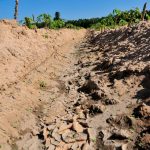Agricultural commodities, processing and products
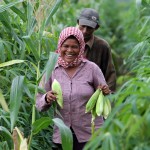
Farmers harvest corn from their farms, Cambodia. Photo by World Bank/Chhor Sokunthea, taken on 17 July 2013. Licensed under CC BY-NC-ND 2.0Key agricultural commodities and products include rice, rubber, corn (maize), vegetables and fruit, and cassava (tapioca). More than 90 percent of Cambodia’s agricultural exports ...
Energy for transport

In Cambodia, petroleum is traditionally the main source of energy for transportation. The petroleum fuels used for transportation include gasoline, diesel, heavy fuel and fuel oil. ...
Cassava
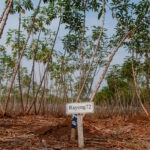
Cassava is a significant contributor to the agricultural sector in Cambodia. The planting, harvesting, processing and export of cassava provides jobs and livelihoods for thousands of Cambodians. Cassava is a significant cash crop for Cambodian farmers.43 Cassava production in Cambodia has increased substantially since 2006. ...
Procurement
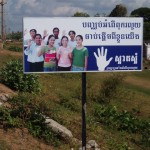
“Stopping corruption may start from us” (Khmer version on Clean Hand poster), in Kratie province, Cambodia. Photo by World Bank Photo Collection, taken on November 22, 2006. Licensed under CC BY-NC-ND 2.0In Cambodia, the activities of buying goods, construction work, repairs, and services and consultation ...
Bilateral development assistance
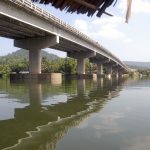
Phum Doung Bridge over the Tatai River. Photo by Robert Tyabji, taken on 9 December 2010. Licensed under CC BY-NC-ND 2.0Bilateral aid is assistance given by a government directly to the government of another country or to a local NGO. The Royal Government of Cambodia ...
Special economic zones
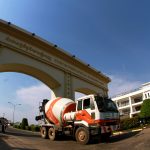
A Special Economic Zone (SEZ) is a defined area within a country that is subject to different laws and regulations than other areas of the country. These comprehensive industrial areas provide preferential incentives to investors and offer government import-export administrative support to facilitate trade. Though ...
Copper
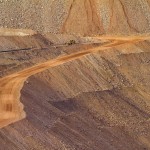
Copper exploration is concentrated in Preah Vihear province in the northern part of Cambodia. The most active explorer is Australian-based Geopacific Resources, in collaboration with Cambodian tycoon Kith Meng’s Royal Group. Geopacific Resources is working with Cambodian-based Royal Group at Kou Sa, a 158 km2 ...
SDG 2 Zero hunger
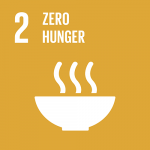
Sustainable Development Goal 2 (SDG 2) seeks to “end hunger, achieve food security and improved nutrition and promote sustainable agriculture”, ensuring universal access to safe, nutritious and sufficient food for everyone at all times. Likewise, it provides a much more comprehensive approach to the issue ...
National Bank of Cambodia
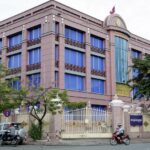
The National Bank of Cambodia (NBC) was established through the Law on the organization and conduct of the National Bank of Cambodia in 1996.229 NBC is the nation’s central bank, whose mission is to determine and direct the monetary policy in order to maintain price ...
Off-shore oil and gas exploration and extraction
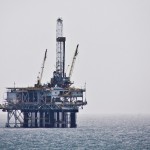
For the purposes of oil and gas exploration, six Offshore Blocks (A–F) have been set out. Significant finds of oil have been made in Block A, but no oil has yet been extracted. ...
Private non-profit development assistance
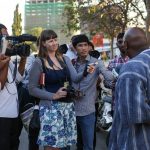
Maina Kiai speaking with journalists outside the Ministry of Foreign Affairs in Phnom Penh. Photo by Maina Kiai, taken on 6 February 2014. Licensed under CC BY 2.0The first humanitarian international non-governmental organizations arrived in 1989. After the 1993 election, more and more internal organizations ...
Securities exchange (stock market)
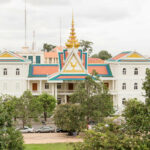
Starting from 2001, work began on promoting the formation of a Cambodian Stock Exchange (CSE or CSX) as a means of supporting the economic system in Cambodia’s development. A stock exchange facilitates the buying and selling of stocks among investors. Dr. Bit Seanglim, Chairman of ...
Development policies and administration
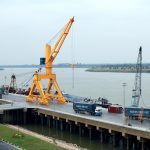
Products from Vietnam arrive at the Phnom Penh Autonomous Port in Kandal province. Photo by World Bank Photo Collection, taken on 23 February 2013. Licensed under CC BY-NC-ND 2.0The Comprehensive Cambodian Peace Agreement, commonly referred to as the Paris Agreement, is seen as the beginning ...
SDG 9 Industry, innovation and infrastructure
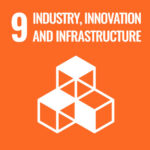
SDG 9 focuses on the development of sustainable and resilient infrastructure and industries, including small-scale enterprises. It encourages scientific research and the upgrade of the technological capabilities of industries. Access to information and communications technology and affordable Internet access are included. The goal has 5 ...
Mining
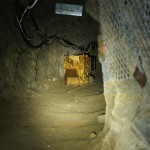
The mining sector in Cambodia is mostly undeveloped, and active mining enterprises are typically small-scale quarries producing materials for construction, such as laterite, marble, granite, limestone, gravel and sand. There is no industrial-scale extraction of minerals, although many exploration licenses have been granted to ...
Biofuel crops
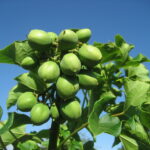
Biofuel crops have a significant potential for contributing to future energy requirements worldwide. Agricultural lands offer energy farming as an alternative to their usual role of food production. Biofuel crops are an environmentally valuable means of sustainable energy production.415 The demand for transport fuels in ...
Forests and forestry

Cambodia’s forests have seen a significant reduction of total forest and dense forest cover in recent years, the growth of plantations, particularly rubber, and an ongoing problem with illegal logging. ...
Electricity production
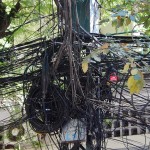
In Cambodia, electricity demands have been forecast to grow at 17.9 percent annually from 2012 to 2020.469 Distribution of electricity around the country has been a challenge: according to UN data, 79 percent of people live in rural areas,470 and the entire national population had grown ...
Ministry of Commerce
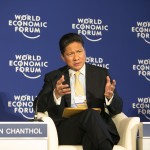
In 1996, the Ministry of Commerce (MoC) was established by law. Its organization and functioning is defined by a sub-decree of the Royal Government of Cambodia. After a nomination of the Prime Minister’s candidate and the vote of confidence on the cabinet by the National ...


